This week I’m tackling one of the great unmentionable subjects of bridge: the fact that players so seldom go to the loo when they need to. We sit for long hours ignoring our bladders rather than risk missing a moment of the action. I’ve always assumed this was bad not just for the kidneys but also the concentration. However, relief — or perhaps I should say reassurance — is at hand. According to Professor Noreena Hertz’s new book, Eyes Wide Open: How To Make Smart Decisions in a Confusing World, the need to pee actually enhances your judgement. She cites an experiment where participants were asked whether they wanted $16 tomorrow or $30 in a month — those who needed to pee were far more likely to take the shrewder, long-term option. When I mentioned this to a friend, he pointed out that Enoch Powell always needed the loo when he made a speech: he knew it kept his brain sharper.
Watching the World Bridge Championships online this week, I saw a defence that combined forethought and patience — exactly the qualities a full bladder can bring about (see image).
Linda Cartner of New Zealand (East) had to defend perfectly to defeat this. She led the ♠A; declarer ruffed and played off six trumps. Cartner came down to ♠K ♥ – ♦QJ ♣K86 – as you’ll see, the only pattern to defeat the contract. Declarer now played the ♣Q and Cartner found the killing duck — if she wins, declarer can get to dummy’s long club and discard a diamond. North continued with ace and a third club but Cartner won and could exit with the ♠K. Declarer had to ruff and lead away from the ♦K — one down.
Got something to add? Join the discussion and comment below.
Get 10 issues for just $10
Subscribe to The Spectator Australia today for the next 10 magazine issues, plus full online access, for just $10.
You might disagree with half of it, but you’ll enjoy reading all of it. Try your first month for free, then just $2 a week for the remainder of your first year.

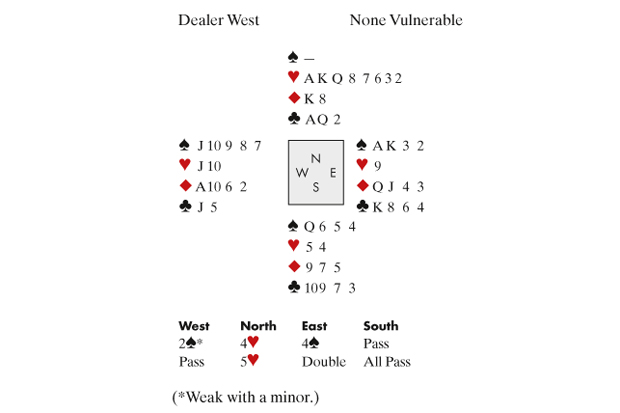
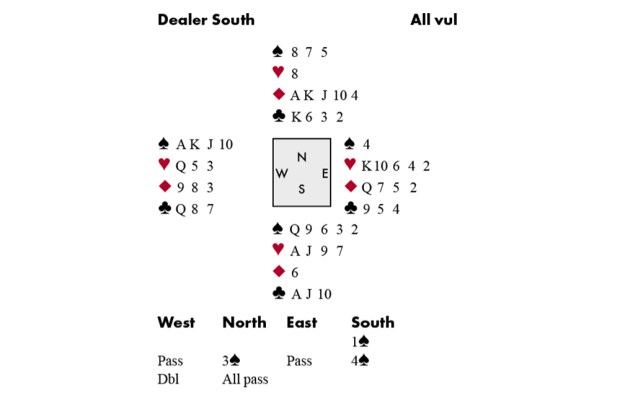
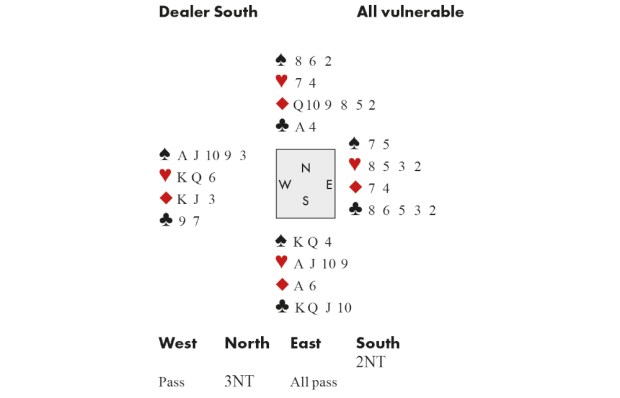
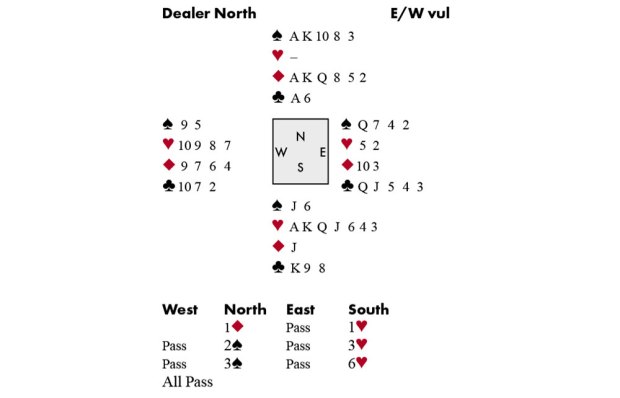
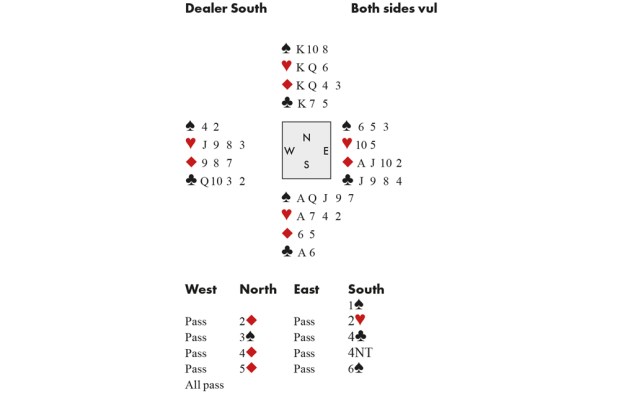
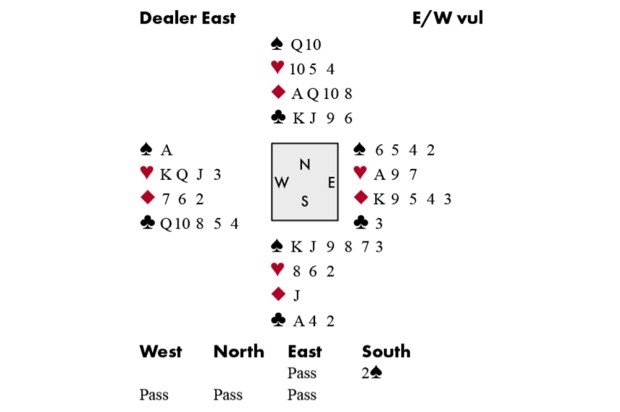
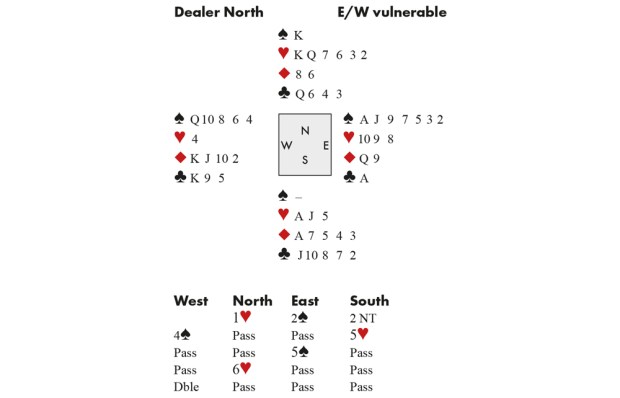






Comments
Don't miss out
Join the conversation with other Spectator Australia readers. Subscribe to leave a comment.
SUBSCRIBEAlready a subscriber? Log in